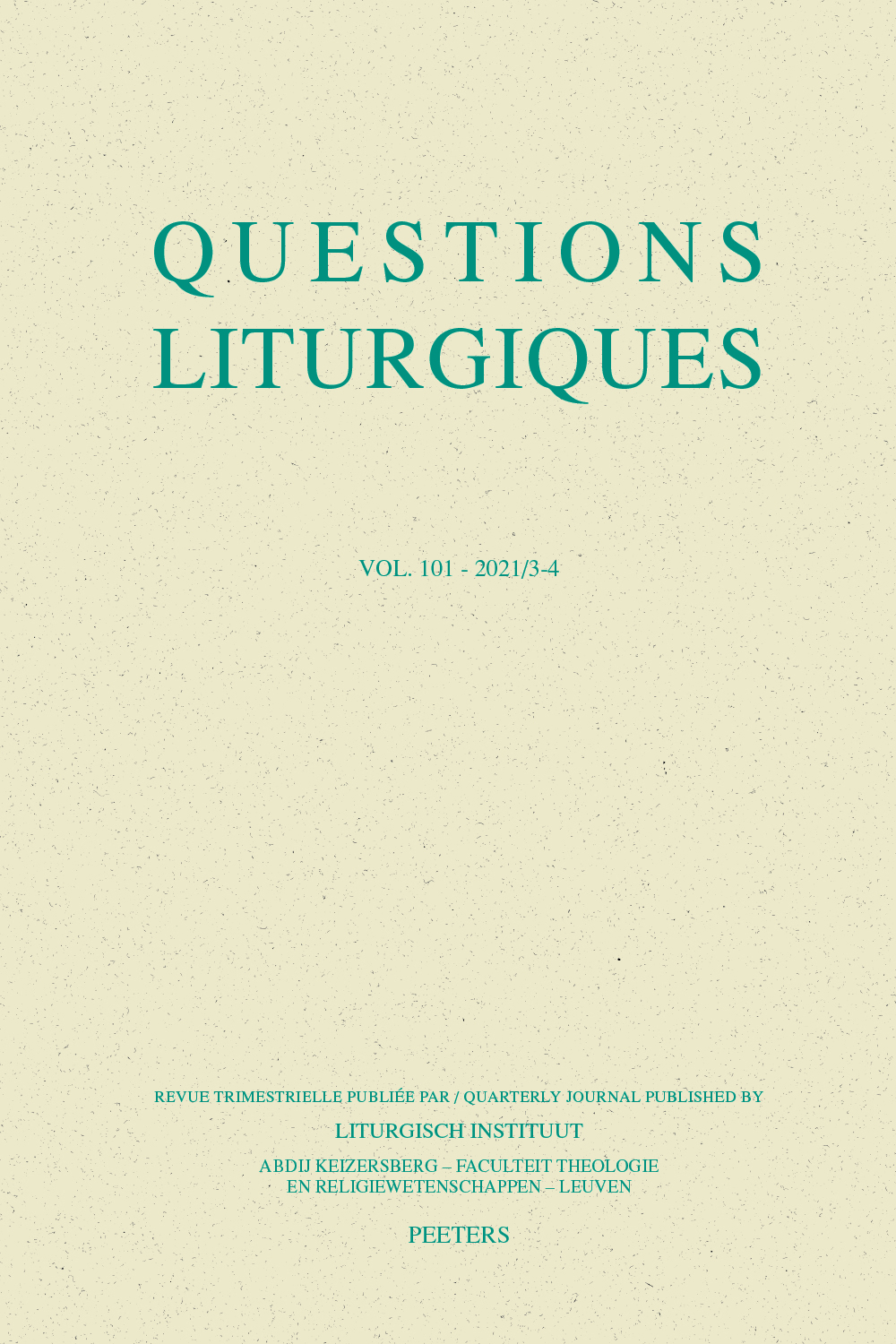 previous article in this issue previous article in this issue | next article in this issue  |

Preview first page |
Document Details : Title: Kinesthetic Piety Subtitle: Eastern Christian Women's Varying Practices in Protestant Homes Author(s): NASRALLAH, Rima , BRINKMAN, Martien E. , MURRE-VAN DEN BERG, Heleen , BARNARD, Marcel Journal: Questions Liturgiques/Studies in Liturgy Volume: 96 Issue: 3-4 Date: 2015 Pages: 149-172 DOI: 10.2143/QL.96.3.3120232 Abstract : This article offers a peek inside the homes of particular Eastern Christian women. It looks at the religious rituals and everyday practices of Lebanese women who originally come from Antiochian Orthodox churches or Maronite churches and who by marriage join the Protestant churches in Lebanon. By considering both the stylized as well as the mundane actions ranging from censing the home to cooking daily food, it argues that these practices are ways of knowing God in the body through doing and making. In this particular example, due to the interaction of many theological flows, the women are impelled to revise, change and vary in their practices. Hence it proposes that this tinkering and ‘playing’ with the rituals is the arena where they form their own personal theology and their religious knowledge - a knowledge that is mostly non-conceptual. Cet article projette un regard à l’intérieur de foyers de femmes orientales chrétiennes. Il concerne des rites religieux et des pratiques quotidiennes de femmes libanaises venues originellement d’Églises orthodoxes d’Antioche ou d’Églises maronites et qui par leur mariage ont rejoint les Églises protestantes au Liban. En considérant à la fois les actions stylisées aussi bien que courantes qui vont de l’encensement de la maison à la préparation des repas, les auteurs argumentent que ces pratiques sont des manières de connaître Dieu dans le corps par des actions journalières. Dans cet exemple particulier, suite à l’interaction de divers courants théologiques, les femmes sont appelées à réviser, changer et varier dans leurs manières de faire. Ensuite l’article insinue que cette adaptation et ce «jeu» avec les rituels constituent le lieu où ces femmes développent leur propre théologie personnelle et leur connaissance religieuse – une connaissance qui est surtout non-conceptuelle. |
|


